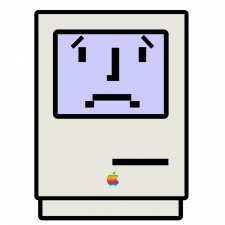America just took Apple to court. Following the EU’s lead with the Digital Market’s Act introduced earlier this month, for whatever reason Thursday 21st March 2024 marked the final straw for the US Department of Justice as they opened a case against the tech giant that's laser focused on putting right the wrongs that we’ve all known about and tolerated for over a decade.
So what’s it all about? While it’s easy to imagine representatives from the US Department of Justice and the EU Commission meeting in the pub on a Friday evening after work to compare notes and what they plan to do next to take down Apple, it is almost certain that such meetings haven’t taken place… Almost.
What’s far more likely is that - stirred up by the apparent unrest and victory over Apple in the EU (which itself was stirred up by the actions of Epic’s Tim Sweeney and others Stateside) - that US-based parties with axes to grind and noses out of joint finally got the DoJ’s ear-time they’ve been begging for.
It’s hard to imagine the level of behind-the-scenes machinations that must have been going on prior to yesterday’s roll out, with representatives from both sides of the argument doubtless pulling strings and calling in favours for months prior. With a company valuation and share price to maintain and billions of dollars invested by the likes of Berkshire Hathaway it’s safe to say that some powerful figures would have been politely requesting that Apple’s onward ascent not be swapped out for an overnight dip followed by years of uncertainty.
Nonetheless, with the EU’s case fought and won, it appears that back in the States minds immeasurably superior to ours, regarded Apple with envious eyes and slowly and surely, they drew their plans against them (© HG Wells).
Apple have instead grasped the opportunity to show off how impossibly powerful they think they are and how futile they think any action against them will be.
Pile on!
In our coverage of the proposal and introduction of the European Union’s Digital Markets Act we’ve often hinted that this could only be the beginning of a bigger war for Apple. After all, if one coalition of millions of people thinks that Apple is taking the mickey and strikes out with the law to do something about it, surely a similarly numerous group on the other side of the pond might have a case too?
Common sense would suggest that Apple’s best hope to avoid a similar battle back on home territory would have been to keep a low profile. Adhere to the EU’s rules and perhaps soften a few of their own back in the States too. Allow your wrists to be slapped rather than slashed and then chuckle all the way to the bank knowing that you got away with it. Surely?
But no. Rather than roll over and at least play dead, Apple have (currently) bent the DMA out of shape and instigated their own brand of checks and measures (and more importantly - fees) that, to anyone with a brain, represent the scantest nod towards obeying the law.
Apple have instead grasped the opportunity to show off how impossibly powerful they think they are and how futile they think any action against them will be. This is one ‘A’ team that really does operate above the law.
It remains to be seen what slow and steady measures the EU will take to further erode Apple’s DMA dodging but in the meantime their stance has helpfully given detractors in the US the precise last straw they needed to break this camel’s back.
More than the App Store
So this is all about App Stores and Epic, right? It’s the DMA with a star spangled banner? Wrong. The US DoJ case goes far deeper than that. This case is focused on eroding (or at least questioning) Apple’s central mantra of producing hardware and software that works together to the detriment of that from other manufacturers.
In a quote often used by Apple’s own mercurial founder and CEO Steve Jobs, Alan Kay, famed computer scientist, once said, "People who are really serious about software should make their own hardware." It’s a notion that’s central to what Apple wants to deliver and have succeeded in delivering. The unique synergy of hardware and software means that Apple products - famously - “just work”. Want to run Spotify on your Homepod? You can’t, but Apple Music works just great. Want to read and reply to iMessages on Samsung Galaxy Watch? You can’t. So buy an Apple Watch instead. Want to screen share your Mac to a tablet? You’ll need an iPad for that, and so on…
This is a company that's 100% focused on providing best in class solutions to problems with nary a nod to anyone else’s world or concerns. Apple lives in its own bubble and - if you buy the hardware and 100% climb inside - you can live in that bubble too.
Everybody knows that Macs, iPhones, iPads, Apple Watches, Apple TVs and Homepods work just great by virtue of turning their backs on everything else. And there’s an App Store, Apple TV, Apple News, Apple Music, Apple Fitness and iCloud service that keeps them all fed with content and talking to each other.
Sure, literally everything in this world costs a little more than rival devices and services, and the small matter that Apple was once (and is close to) being the richest company on earth, would suggest that they are coining it in and laughing all the way to the bank, but one has to ask who exactly is the DoJ trying to help out and what’s their endgame ‘win’ in all this?
We’d ask who exactly is it that’s lamenting the poor performance of their Galaxy Watch with their iPhone but let’s just go with this one, eh?
Why now and what for?
The short version is that they think that Apple have successfully created a monopoly in the smartphone market and, to help mere mortals get to grips with the harm that’s been done and the wrongs that they want to rectify, the DoJ have helpfully outlined their plan of attack across five key points in a news conference.
Firstly is the fact that if you want a watch that will work well with your iPhone then you have to buy an Apple Watch. We’d ask who exactly is it that’s lamenting the poor performance of their Galaxy Watch with their iPhone but let’s just go with this one, eh?
More interestingly and relevantly they point at the system level blocks that Apple have in place for apps like WeChat, preventing these ‘super apps’ from true cross-system usefulness. Apple would insist that such measures are all in the name of security of course. Android users have an all encompassing WeChat experience that turns their phone into a WeChat machine… While iPhone users do not… For a reason.
Likewise Apple Pay and Apple Wallet are a little too well integrated into the device meaning that other payment services look, at best, under-functioned and at worst useless or positively dodgy in comparison.
And the state of cloud gaming on iPhone? It’s a mess. Can you? Can’t you? What hoops do you have to jump through? Apple has done a great job of saying ‘look over there!’ and dodging the issue of letting cloud gaming apps have their fun on iOS and being a true alternative to their App Store monopoly.
And finally - and perhaps best of all - the DoJ HATES Apple's snarky implementation of green bubbles in iMessage to denote that the person you’re iMessaging with isn’t using an iPhone. Not only are you - therefore - unable to share video and MMS messages with that person when using the platform but their status as a second class citizen is helpfully and disdainfully flagged up.
In fact iMessage is perhaps the biggest so-called ‘lock-in’ for Apple and the DoJ have got none other than Tim Cook on the record bragging as such.
In a video from Vox Media’s Code Conference 2022 a member of the audience points out to Tim Cook, who’s live on stage, that when using his iPhone he can’t send his Mom videos. Tim’s response is that he should “Buy your Mom an iPhone.” A throwaway comment - taken in goodwill and humour at the time - that will prove to be problematically pivotal in this argument.
Tim’s response is that he should “Buy your Mom an iPhone.” A throwaway comment that will prove to be problematically pivotal in this argument.
But perhaps the biggest driver for the DoJ bringing this case to bear is that they’ve done it all before… And won. With a dramatic outcome.
DoJ to the rescue!
The DoJ stepped in in similar circumstances back in 2001 when they brought a case against Microsoft and its dominance in computing and specifically nascent internet technology. Microsoft was running a monopoly it was deemed, by virtue of them owning the operating system that ran every major piece of software and the hold they held over the world’s PC makers as a result.
Key applications such as Microsoft Explorer (for the internet) and Microsoft Office (for everything you ‘do’) were the cherries on Microsoft's carefully constructed (but deep down crumbly) cake, meaning that - in basic terms - Microsoft had, after years of tireless work achieving their goal: becoming too powerful for anyone to realistically take on.
But the DoJ broke up the monopoly, disallowing Microsoft from giving preferential treatment to its own software because it owned the OS and allowed alternatives on all fronts to access the hardware and audience it had built. Plus, it has to be said, encouraging Microsoft to finally compete for once, forcing them to pull up their boot strings to create some good software that proved popular because it was good rather than simply the only horse in town. Win, win all round.
And - ironically - it's a situation that Apple ultimately benefited from. As the PC’s closest (only?) competitor Apple scooped up the spoils. Now the Mac ran MS Office… It had MS Explorer… That Bondi Blue iMac was kinda cool… And - whoa - the internet in its simplest-to-use form yet! iTunes! Rip, mix and burn! iPods! And iPhones too? The rest is history.
Whatever happens next, starts right here
Will taking Apple down a peg or two open the door to new companies with new ways of thinking, new products and keener, sharper price tags? Will the DoJ change the game once again? While we admire the DoJ’s noble intention and we’d certainly like to see some of the more egregious Apple dodges outlined above brought to a crushing close, it’s hard to spot a rival waiting in the wings, ready to step in, mop up and put the balance right.
And if Apple is forced to slow down, take stock and make provisions for everyone else to grab a piece of the pie, will the Apple that fans know and love be lost forever? Right now everything “just works” but in the future, for Apple and their legion of users, it might not.





















